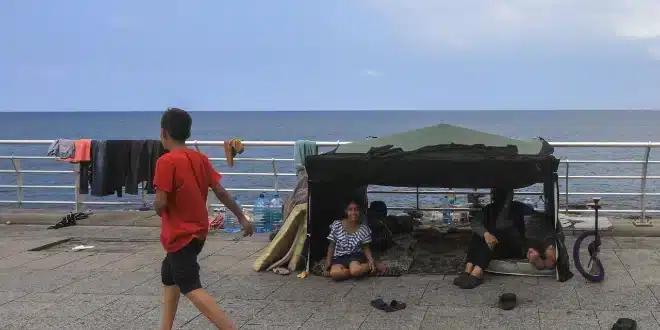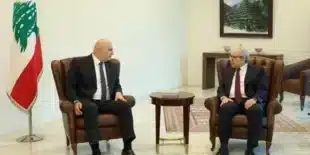The displacement of hundreds of thousands of people in Lebanon due to intensified Israeli bombing has been described as “devastating” by a U.N. migration official, who also emphasized that international support is falling short of the urgent needs on the ground.
After a year of intermittent cross-border fire between Israel and Hezbollah, the conflict escalated last month when Israel intensified attacks on Hezbollah positions in southern and eastern Lebanon, as well as areas in southern Beirut. These strikes came after Hezbollah launched attacks on Israel in support of its ally, Hamas, which is engaged in conflict with Israel in Gaza.
According to Lebanese authorities, the violence has killed hundreds and displaced over a million people, most of them since September 23.
Othman Belbeisi, the Middle East and North Africa director for the International Organization for Migration (IOM), expressed concern over the scale of the displacement and the lack of sufficient aid. “Lebanon needs more support. What has been offered so far is minimal and does not match the needs,” he told AFP during a visit to Beirut.
The IOM has verified and tracked around 690,000 internally displaced people in Lebanon, with an additional 400,000 reportedly fleeing to neighboring countries, primarily Syria. Approximately 185,000 of the displaced are housed in official shelters, such as schools, while others are renting accommodation or staying with relatives. A large number are living in informal or “host settings,” and some have no shelter at all.
The situation is dire for many of those affected, with people fleeing their homes “with nothing, out of fear,” said Belbeisi. Many now face the daunting task of rebuilding their lives, as Israeli air strikes continue in certain areas, including southern Beirut.
To address the worsening humanitarian crisis, the United Nations has launched an appeal for $426 million to assist Lebanon over the next three months, including $32 million specifically for IOM efforts to support around 400,000 displaced people. However, the U.N. Office for the Coordination of Humanitarian Affairs (OCHA) reported on Friday that only 12 percent of the appeal has been funded, with just $51 million received so far.
Lebanon has already been grappling with a severe economic crisis for the past five years, which has crippled government services and pushed many into poverty. Belbeisi emphasized the urgency of scaling up international support, saying, “We want this displacement to end as soon as possible.”
The current wave of violence between Hezbollah and Israel began in October 2023, when Hezbollah launched cross-border attacks following the outbreak of war between Hamas and Israel. Since then, the conflict has claimed more than 2,100 lives in Lebanon, with over half of the deaths occurring in the past few weeks, according to government statistics.


